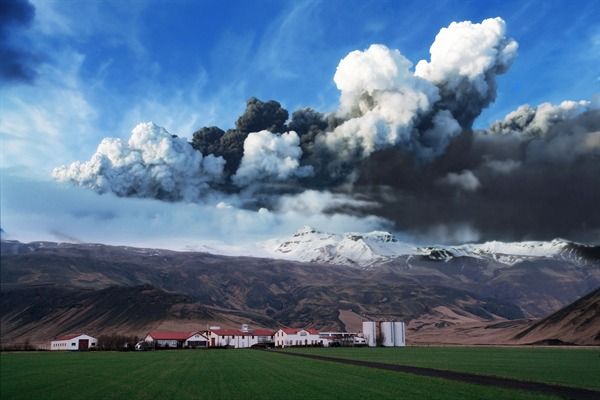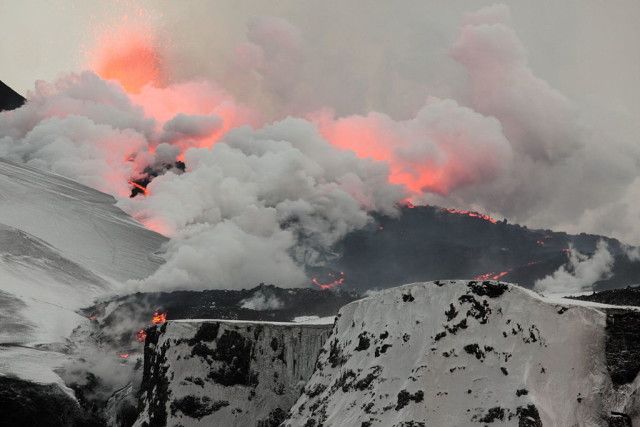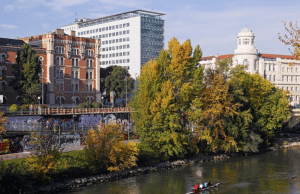
By Rok Klančnik
The Icelandic volcano, which has been spewing ash since the middle of April and grounding aircraft, encompasses the whole message of newly discovered knowledge on crisis management in (Slovenian and international) tourism. Just as described in the book published by our publishing house a few months ago.
A negative event or occurrence in the age of “new normality” can happen any time anywhere. If it happens in Iceland, we might feel it in let’s say….the Slovenian town of Olimje. We have to expect the unexpected. It’s true: nothing may surprise us, as we used to say in the times of the bitter red regime.
The ash eruption of Icelandic volcano (Eyjafjallajökull lies 25 km from Katla, a more powerful volcano. Every eruption of Eyjafjallajökull in the years 920, 1612 and 1821 was followed by an even stronger one from Katla), has caused the grounding of aircraft all over Europe and even Slovenia. It’s true – we’re not guilty of anything, yet this crisis in air travel has affected us as well. To be realistic, the Slovenian meeting industry was affected first, because April and May are ideal months for business meetings, much less so for vacations.
Who is to blame?
Eyjafjallajökull, the only volcano with its own fan club on Facebook. Not one, but three.
No one can be blamed for the eruption of a volcano. Remember there are two types of negative events in tourism: those caused by man (terrorism, arrogance or accidents), and those referred to as “vis maior”, higher power or even as the act of god.
This eruption is of course counted as the latter. Yet the quarrels in the European air market were caused by people. We have to understand that even our small national air carrier Adria Airways suffered over one million Euro in losses – imagine the losses accounted by the gigantic Lufthansa. Airplanes are like hotel rooms – the most expensive ones are empty ones. A plane unable to fly is a luxury no air carrier can afford.
Opinions on whether a plane could fly through volcanic ash are of course very different. While airports and air controllers claimed no human life should put at risk (planes should stay grounded) the airlines and their representative IATA were furious.
Giovanni Bisignani, who has been running the Geneva airlines association for eight years, told the BBC that what happened was a ‘complete disaster’. The situation was worse in the UK, since British Airways uncovered evidence that volcanic ash would not harm the planes. The thousands of tourist, and congress delegates had no access to this data. They have lost a lot of money, time and nerves. So did many hotels, including receptionists, waiters, taxi drivers, along with many guests. A lot of materials printed for congresses in April or May will go to waste. Who will pay the damages? Apparently, we’ll have to ourselves.
So what do we do if Eyjafjallajökull keeps spewing ash? Or if his larger brother Katla gets the hiccups as well? There are thousands of possible scenarios. It might be a good idea to sit and write them all down with a nice glass of wine in hand.
The book “Crisis management” will not solve the crisis, yet it will provide useful advice on how to behave in such cases. We are certainly not going to Iceland to try to put out the raging volcano; we will rather grab the bull by its horns. Since the largest number of foreigners is brought here by Adria Airways it deserves our full attention and cooperation. We have to acknowledge our business partners also have serious issues and costs with the cancellations of flights. Keep regular contact with them, if possible pay them a visit and try to negotiate the rescheduling of a conference, meeting, incentive trip.
In short – we need to focus on two main tasks:
Crisis communication before, during and after the crisis of the air industry (keep contact with Adria Airways and other airlines, communicate with other meeting planners and tourist groups, also with agents who can transport the guests by ground);
Internal en external responses to the crisis: internal are mostly fresh organization solutions and updating the work processes, the external is focusing on markets which are accessible without air travel.
Considering the latter – let us remind the Slovenian government once again we need to hurry with the modernization of the Slovenian railways. A normal high speed train (TGV, InterCity) could reach Ljubljana from Amsterdam in six instead of twenty hours.

The boy who cried “wolf”!
A long time ago a boy from an Indian village cried “wolf, wolf!” each night. The villagers took to their arms and came to his defence only to realize he was dreaming. Eventually they stopped coming altogether. One morning they found him murdered by wolves. So, it might be a better idea to keep the planes on the ground than to risk an accident like the one near Smolensk where the Polish president was killed. The very first scenarios of crisis management came from none other than airlines.
Let us conclude with some borrowed Brecht: “The book is an excellent instrument against the crisis in tourism, do read it sometime”.














